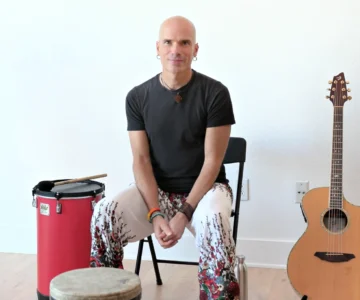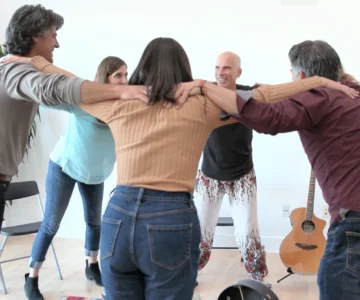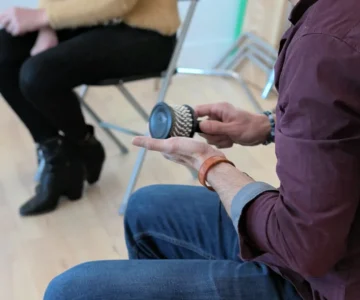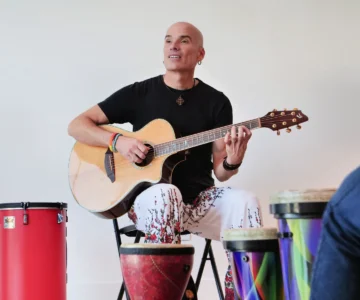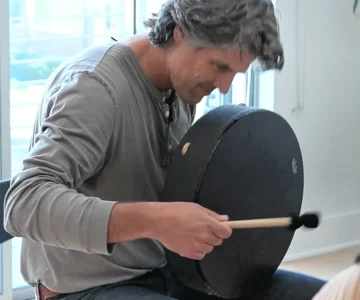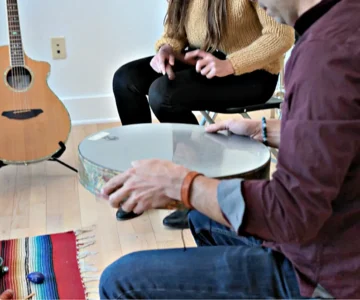Music Therapy helps your clients stay S.O.B.E.R.
What if there was a recovery tool that when used correctly, relieved cravings, but when used incorrectly, triggered them?
Wouldn’t you want your clients to know the difference?
THE PROBLEM WITH MUSIC
Music can trigger cravings and relieve them, but which music, and when?
Music is not all good. The research is clear that music can trigger memories, stress, and cravings without our permission or consent. Basically, music has several hidden landmines that can blow up someone’s recovery.
The last thing you want is for your clients to put in all that hard work at your center, get triggered by their own music, relapse, and then blame you or claim your treatment didn’t work.
THE SOLUTION: MUSIC THERAPY
Based on my book, Sonic Recovery: Harness the Power of Music to Stay S.O.B.E.R. and the research cited within it, your clients will learn to reach for music as an evidence- based coping skill. Each session, they will musically explore the S.O.B.E.R. acronym with a board certified music therapist.
Why Music
Therapy?
Music is play based, so recovery concepts can be explored in a way that doesn’t feel like work.
Your clients already have a powerful connection to music. They trust it.
Music causes physiological changes in the brain like no other stimulus in nature.
The Goal?
Your clients reach for music as an evidence-based recovery tool to relieve stress, release trauma, and stay sober.
What is the S.O.B.E.R. Method?
The SOBER method represents the five ways music helps someone on their recovery journey. In every music therapy session, between one and all five of these outcomes are addressed as clinical goals.
Stay present
When we MAKE music, we have to be in the present moment, otherwise we miss the beat! Staying present minimizes ruminating over the past or future.
Open up
We don't need to talk about our feelings to express them, ESPECIALLY if we’ve been been through trauma. We can safely express our feelings
Be creative
All humans are creative. Creativity is a coping skill. It’s how we problem solve. When we make music, it builds the problem solving portion of
Escape stressors
When we are chronically stressed, the brain triggers cravings in an attempt to self soothe. Active music making and listening turns off
Reconnect
Humans are pack animals, and require connection to survive and thrive. We can safely connect to our preferred music because music doesn’t judges our feelings or actions.
OUR CLIENTS LOVE MUSIC THERAPY!
“Having music therapy as a service for our clients brings a different approach to our common goal of helping client’s find life outside of addiction. Music therapy is a unique, evidenced based practice that helps clients achieve their treatment goals. Our clients are devoted to music therapy and are often requesting additional sessions each week. I would recommend music therapy to any organization as it can serve as an integral part of their treatment approach.”
– Jacqueline Hoagland, Clinical Director, The Arrow House
“Our clients love Tim and always look forward to his group. We have a returning client from 2 years ago back with us and mentioned wanting to be a music therapist doing something similar to what Tim does due to his experience last time.” – Amy S. Resident Supervisor, Newport Academy
“Honestly, all our clients enjoy music therapy.” – Joe Vaccaro, Regional Executive Director, Newport Healthcare
